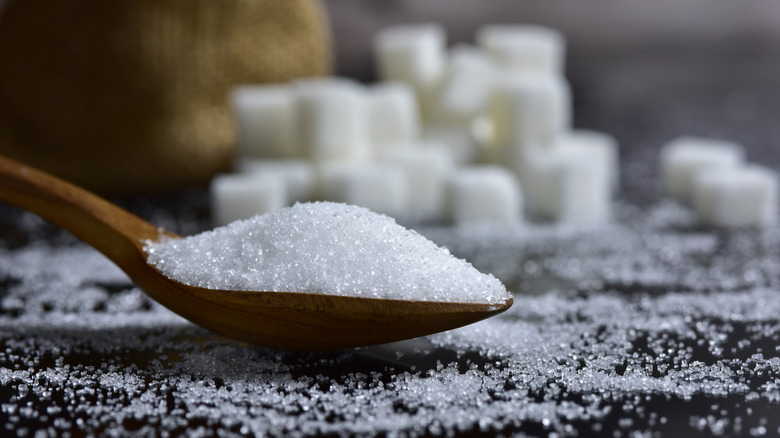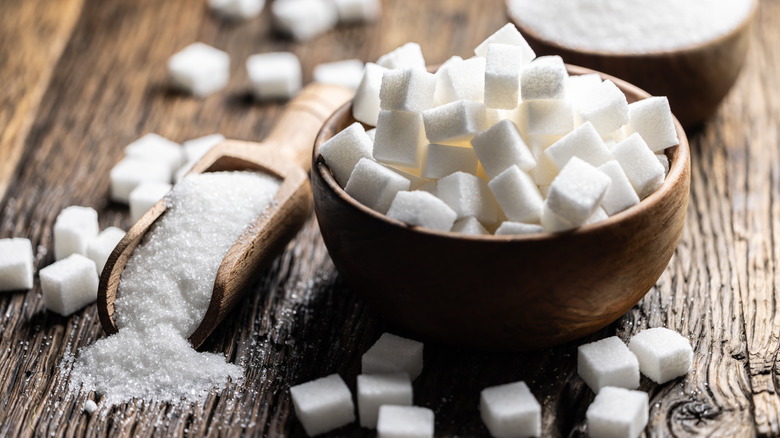The Closest Substitute For Caster Sugar In A Recipe
Home bakers are familiar with a whole range of options when it comes to certain ingredients. When it comes to sugar, many know there's an entire spectrum beyond white, brown, and powdered. Caster sugar (also known as superfine sugar in the U.S.) is one of those lesser known sweeteners that pro bakers use often, but may be less commonly available on the average grocery store shelf. Bakers love to use it in meringues, sponge cakes, and other delicate baked goods, as the finely ground sugar dissolves quickly and evenly into liquids and batters. Fortunately, there are other ways to work through a recipe if you can't get your hands on this stuff, and a bona fide sweets professional was generous enough to share her tip with Chowhound.
Hana Dreiling, Founder and Head Baker of Holey Grail Donuts (with locations in Los Angeles & Hawaii), took a moment to explain what she believes to be the best substitute for caster sugar. Her answer is an ingredient you may already have in your pantry and requires just one extra step to make it fit the bill. "The closest substitute for caster sugar is granulated sugar, processed in a food processor or blender until it reaches a finer consistency," she says, adding that, "it mimics caster sugar's ability to dissolve quickly, which is essential for smooth batters and delicate textures." So while you may know the differences between brown and white sugar and how to substitute one for another, this expert suggestion is the answer to your caster sugar conundrum.
Pro advice for processing your own caster sugar
Creating caster sugar right at home is a snap, according to Hana Dreiling. "Simply process granulated sugar in a food processor, blender, or spice grinder for 1 to 2 minutes until it's finely ground but not powdery like confectioners' sugar," she said. In a pinch, you can even use your coffee grinder to chop up your sugar. In order to avoid a major mess, Dreiling had an additional tip, advising bakers to let the sugar dust settle before opening up the lid. After that, you can store this stuff in an airtight container and get ready to get your bake on.
There is one caveat to this tip, however. As you're making your own version of caster sugar, you can expect it to not be as evenly fine as the traditional store-bought version. This inconsistency can slightly alter the overall texture of your baked goods. Still, Dreiling noted that for the most part, it's a more-than-adequate alternative. And if this caster sugar question was on your list of everything you wanted to know about sugar but were too afraid to ask, her simple pro trick has you covered.

